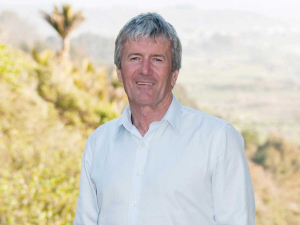The Government is backing what it says is the largest ever study on the sustainability of New Zealand’s farming sector, Agriculture Minister Damien O’Connor has announced.
He says the $26.1 million programme will be the most comprehensive study of pastoral farming in New Zealand.
The Whenua Haumanu programme is being led by Massey University’s School of Agriculture and Environment and aims to enable farmers to make informed decisions on the financial and environmental benefits of adopting regenerative farming practices.
“New Zealand’s economic security depends on our primary sector, which this year earned us a record $53.3 billion in exports. Our future competitive edge in food and fibre will depend on demonstrating our sustainability credentials to ever more discerning consumers,” O’Connor says.
“The new Whenua Haumanu programme will study the whole pastoral farming system from field to fork.”
The Government will commit $17.6 million over the course of seven years through the Ministry for Primary Industries’ Sustainable Food and Fibre Futures (SFF Futures) fund.
The programme will involve several research sites and bring together universities, Crown research institutes, and industry groups. Research partners include AgResearch, Lincoln University, and Dairy Trust Taranaki. Additional guidance will be provided by an End User Advisory Group comprised of the pastoral industry, iwi, investment and consumer groups.
Research sites include Massey University’s Dairy 1 farm, Massey University’s Pasture and Crop Research Unit, and Lincoln University’s Field Research Centre, with additional monitoring sites planned on some Pāmu farms and pastoral industry demonstration farms.
“This is the most comprehensive study ever undertaken of our pastoral systems, both conventional and those incorporating regenerative farming practices,” O’Connor says.
He adds that the Whenua Haumanu programme is part of a broader coordinated work the Government is backing that aims to provide a robust evidence base to explore regenerative farming practices alongside conventional pastoral practices in both dairy cattle and sheep systems.
“In doing so it will also test claims that many of our conventional pastoral practices are already regenerative.
“One key aim of the programme is to investigate potential benefits of diverse pastures for grazing animals, as well as regenerative farming practices, as these have yet to be thoroughly studied for the New Zealand farming context.
“Developing a sound evidence base for what works well with our soils, climates, and farming systems will aid our efforts to transition to a more sustainable future for our food and fibre sector.
“Purchasing decisions by consumers in our export markets are increasingly being driven by their values. The work by Whenua Haumanu will help New Zealand tell the story of its food production so we can grow exports and deliver economic security.”











